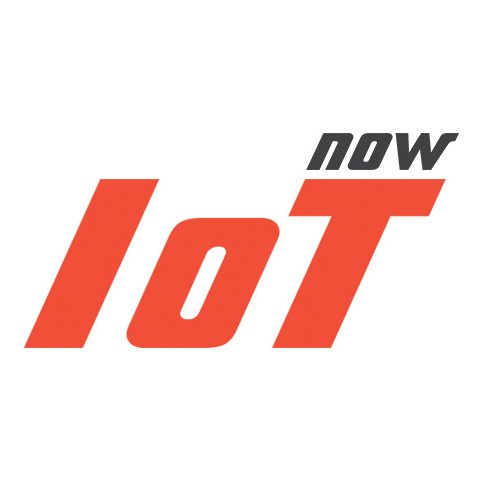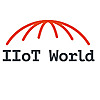LONDON – WEDNESDAY 4TH MAY, 2022 – Wireless Logic Group, Europe’s leading IoT connectivity platform provider, has announced the results of a new Censuswide report into the ongoing digitization of consumer behavior and adoption of next level retail experiences. In particular, the report examines how an increase in food deliveries, omnichannel shopping and cashless payments is currently driving the need for resilient online connections across the retail sector (something like IoT-enabled retail experiences).
Among the findings of the report is a clear desire for ‘Everything Now’, where goods and services are ordered and delivered quickly and conveniently. In addition, the results point to rising adoption of smart digital vending, as well as demand for traceability and sustainability of deliveries.
By bringing resilience to their IoT applications, retailers can innovate and thrive ahead of their competition. This report focuses on three distinct use cases – point-of-sale (POS) terminals, vending and last mile delivery – where IoT is making a real impact on the retail experience in future-proofing the sector.
Point-of-Sale (POS) Terminals Must Be Available, Reliable, and Secure
PoS technology is critical in today’s retail market. Credit and debit card transactions have become the de facto choice of payment, with 38 per cent of respondents citing contactless/chip and pin as the payment method they use most often. For retailers looking to avoid churn, this requires immediate connectivity to ensure customers can always pay, without delay. When asked what they would do if their preferred payment method was unavailable online, one in five respondents would find an alternative retailer. When shopping instore, 21 per cent would blame the retailer if a card machine was available but it was not working when payment was attempted.
Security is also front of mind. Almost two thirds (58 per cent) of respondents are concerned about the security of their personal details or payment information when making an electronic payment. 37 per cent believe it is the retailer’s responsibility to ensure the security of the transaction.
Vending Machines Are Growing in Popularity for Certain Product Categories
Vending, and automated retail in particular, is one of the fastest growing areas of retail today. Accelerated by the pandemic, vending machines provide an unattended retail solution that works across a diverse range of businesses and environments. The research reflects this upward trend, with almost half (46 per cent) of consumers agreeing that there should be more options to purchase goods through vending machines in the UK. When asked why, respondents cited convenience (53 per cent), accessibility (45 per cent) and friendlier operating hours (33 per cent).
Airports, hotels, and hospitality venues are popular locations for vending machine use, with the average consumer using one five times in the last three months, at one or more of these locations. Magazines and newspapers (61 per cent), non-alcoholic drinks (74 per cent), and hot food (48 per cent) are the categories consumers are most willing to purchase from vending machines. That said, alcohol (48 per cent) and vaping products (31 per cent) were also popular responses.
“There has been much debate over how the retail sector can both survive and thrive in a post-pandemic world – and businesses and consumers have had to change the way that they interact,” said Jason Vincent, Innovation & Software Director at Aeguana, an award‐winning company specializing in automated retail technology and a Wireless Logic customer. “Given our focus on unique touchless vending technology, it is welcome to see increasing consumer demand for vending in this report. Digital vending machines, like all point‐of‐sale terminals that process cashless payments, depend on resilient, continuous connectivity to take payments and provide a seamless customer experience. So, this must be a primary consideration for organizations. Without it, there is a high risk of revenue loss should customers be unable to pay using their preferred method or unable to use other on-screen services such as redeeming a discount code, and ultimately taking their business elsewhere.”
Timeliness, Traceability, and Sustainability Emerge as Key Demands for Last Mile Delivery
The transport and logistics sector is key to keeping the retail and ecommerce sectors running efficiently, particularly as consumers express higher expectations of last mile service. When ordering takeaway food, consumers are willing to wait an average of 35.14 minutes from order to delivery, with just 0.57 per cent prepared to wait longer than an hour.
Traceability is also important for brand reputation, as a third (33 per cent) would think the retailer is more likely to lose the product if delivery tracking information was not available, and a quarter (25 per cent) would think the retailer was not legitimate. The importance of delivery tracking information seems to rise with purchase value and perishability, as consumers are most concerned with the traceability of electronics (87 per cent), white goods (86 per cent), and food and perishables (86 per cent).
Lastly, more than half (52 per cent) would pay more for an item if the delivery options were more sustainable. This includes green delivery slots, bicycle deliveries, click and collect, escooters or electric vehicles and delivery robots. This number rises to 61 per cent in the 16-34 age group.
“Timely deliveries depend on reliable connectivity to function – there are so many online interactions between delivery drivers and retailers to arrange and confirm pick-up and drop off details,” said Ian O’Connor, Managing Director at Eskuta Limited, a Wireless Logic customer. “It’s a seamless operation made possible by the rapid exchange of up-to-date information. Any failure in communication could result in missed orders, unsuccessful deliveries or frustrated customers chasing updates. Such outcomes make for bad customer experiences, potentially lost revenue, and long-term reputational damage, which can all be terminal in today’s competitive retail landscape. The survey reflects this, as consumers are increasingly demanding shorter lead times – and GPS tracking across secure, reliable cellular networks is critical. And, if a delivery experience is poor, eight in ten respondents would be wary of making future purchases with that retailer or blacklist them altogether.”
“At Wireless Logic, we understand the trends shaping today’s retail sector,” said Oliver Tucker, Co-Founder and CEO, Wireless Logic. “Our ultra-high availability SIMs are built for the IoT and can support food order and delivery services, cashless payments, parcel lockers, vending machines and more. When service providers and OEMs partner with us, we help them to become more consultative in their approach and strategic in their solution recommendations to their retail customers.”
“The research is clear – and to meet these high customer expectations of speed and simplicity, retailers need resilient and secure cellular connectivity for their online services. Without it, they may lose orders and revenue or even suffer damage to brand reputation.” Learn more on IoT-enabled retail experiences and what they can look like in the resources below.
Methodology
The research was conducted by Censuswide between 4th April – 8th April 2022. It involved a nationally representative sample of 1,224 UK respondents between the ages of 16-54.
- For a full executive summary, please visit: https://wirelesslogic.com/library/Censuswide-Executive-Summary.pdf
- For an accompanying blog, please visit: https://www.wirelesslogic.com/uncategorised-en/consumerexpectations/
- For accompanying infographics, please visit:
About Wireless Logic
For more information on Wireless Logic (and their solutions for IoT-enabled retail experiences), visit: https://www.wirelesslogic.com/





 More Articles
More Articles










